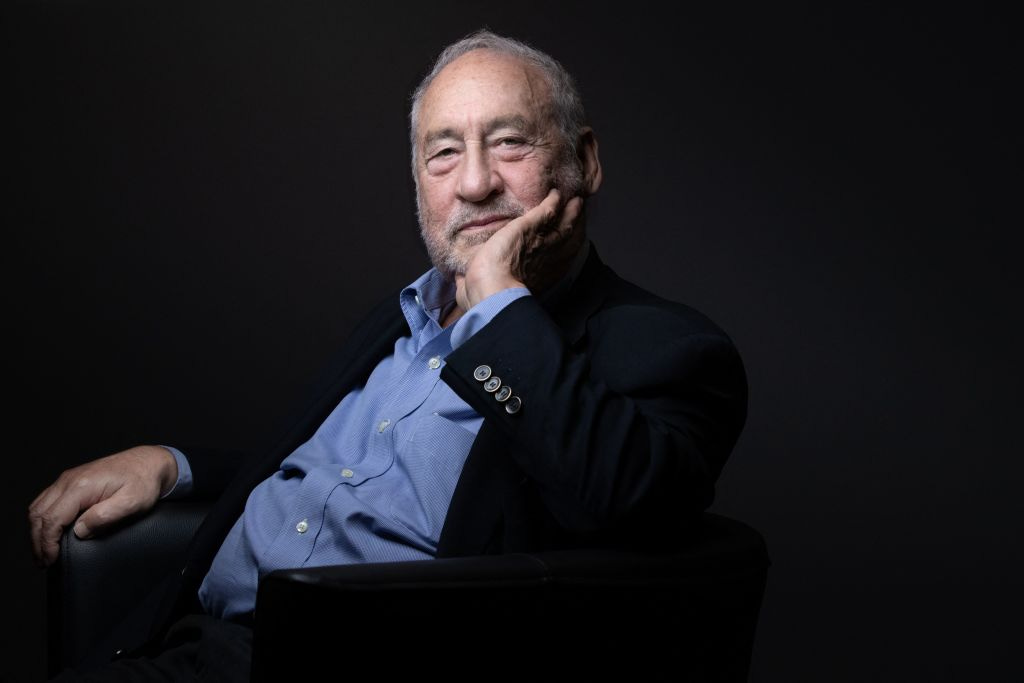Biden stepped back from neoliberalism. Will Harris follow suit?
Economist Joe Stiglitz on the vacuum begging to be filled
The most surprising thing about Joe Biden’s presidency is that a lifelong moderate became a doubter of neoliberal logic. From his multiple trillion-dollar-plus spending proposals to his full-throated championing of government action in defense of the common good to his embrace of industrial policy and stricter antitrust enforcement and even taxes on the super-rich and big corporations, Biden stepped back from the logic of the age: that given a fork in the road between what is good for money and good for people, go with the money side.
When Biden was wavering on whether to step aside this summer, some of his most surprising defenders were progressives who praised Biden as a surprisingly progressive leader and who warned that a replacement might not be.
Now, of course, we know who that replacement is. Vice President Kamala Harris has been more progressive than Biden on certain issues in the past, and less so on others. Now she appears to be running in a more moderate lane, given the circumstances.
But on the fundamental and philosophical question of neoliberalism — the supremacy of markets — where will Harris come out?
It’s a good time to dive back in to this conversation with Nobel laureate and Columbia economist Joe Stiglitz. There is no one better to help think through the vacuum left by neoliberalism’s failures and catastrophes — and what might replace it, and how.
Become a subscriber today to support our work and get access to The Ink’s archives.
In certain circles, the word “neoliberalism” is very well understood, but a lot of people out there have no idea what it means. Could you just start by explaining what neoliberalism is as an idea, but, more importantly, can you explain how people may be living neoliberalism in the day-to-day of their lives without realizing it? The cars they drive, the workplaces they go to, the food they eat, taxes they pay, the help they do or do not get.
The term comes from “neo,” or new, and “liberalism,” or freeing. Liberalism was about freeing the economy — and society. Neoliberalism was intended as an update of 19th century liberalism: ideas that prevailed 150 years ago about making a good economy by just letting the markets rip. Those ideas led to the Panic of 1907, the Great Depression, the suppression of labor throughout the period.
And that's why people thought, “Well, we need an update.” It all sounded good, except when you looked beneath the surface, what it meant was stripping away regulations, lowering taxes, and letting the market do whatever it wanted to do. The belief was — in spite of the evidence to the contrary — that in the absence of government intervention, markets would by themselves be competitive. And that the force of what you might call “buyer beware” would make sure that firms didn't exploit because if they did, they would lose their customers.
But this was all based on some ideas that had, really, no economic foundation, particularly after I did my work (which analyzed how economies in which there were imperfections of information functioned), and showed that in that kind of a world you could have exploitation, firms could take advantage of others.
More broadly, in the 21st century we live in, a world where we're urban, we interact, we are reaching our planetary boundaries, and one firm's pollution may have life-threatening effects on other people. And that's really one of the main themes of the book, how unfettered freedom for some has real costs, and in fact reduces the freedom of others — even the most basic freedom, the freedom to live.
So the freedom of a company to pollute means the loss of freedom to live for somebody with asthma. And the freedom of firms to pollute is causing global warming and climate change, which is reducing freedom for all of us, particularly those in the tropics. To live a normal life, people there have to spend enormous amounts of money to protect themselves against the effects of climate change. These are all basic ideas that ought to be brought to the fore once you start thinking about what freedom means.
What you're saying is so simple and so important at the same time. I'm 42 years old; I've lived entirely within the era that you're describing and critiquing. And I think of simple phrases that I grew up with that were just unconsidered: “Don't divide the pie more, just expand the pie.” “A rising tide lifts all boats.” “You don't have to take away from some for others to have more.”
And what you're describing is a more old-school idea, which is that often what's going wrong for some people is caused by other people. Anyone in the ancient world would've understood that. Can you talk about how that notion, that basic idea that sometimes people hurt other people, and that sometimes your pain is caused by other people, was cast aside in the neoliberal era?




